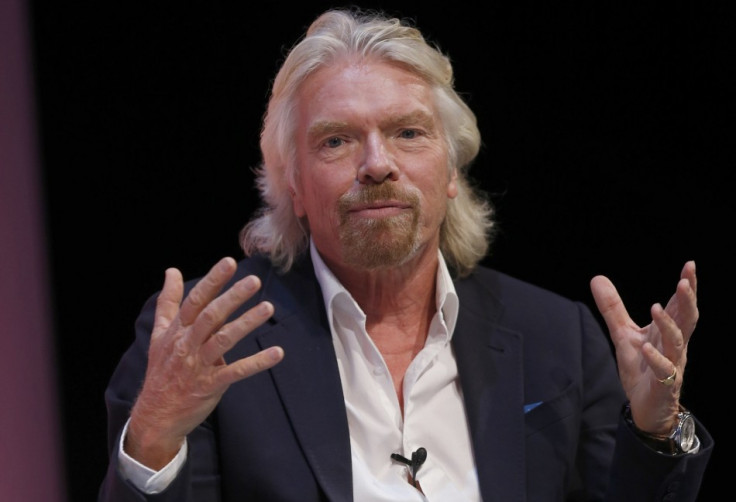Richard Branson: War on Drugs 'Like a Business Which has Failed for 50 Years'

Sir Richard Branson has compared the War on Drugs to a failing business which has got "worse and worse" over the past 50 years.
The Virgin Group founder said that, had he managed the global battle against drugs like one of his businesses, he hoped that someone would have "taken him to a psychiatric hospital to get my head checked" by now.
Branson was speaking at a press conference in New York organised by the Global Commission on Drug Policy, a group of former world leaders, politicians and members of the United Nations who are calling for the decimalisation of drugs and overhaul of drug law reform.
Branson, a long standing advocate of the delegalisation of drugs and member of the Commission, said it is "unforgivable" how drug users have been treated as criminals and faced appalling fates such as executions and incarceration.
The billionaire tycoon continued: "If a business was doing badly, I would look at other examples where things are going better, maybe look overseas."
Branson said the rest of the world should see Portugal as a "shining example" of how to reform drug laws.
In 2000, Portugal decriminalised the use of all illicit drugs and radically changed the laws for drug possession, with many cases not going to court. Users are also referred to the Commissions for Drug Addiction Dissuasion to help them find treatment.
João Castel-Branco Goulão, Portugal's national drug coordinator and the chairman of the European Monitoring Center on Drugs and Drug Addiction, wrote in the New York Times that since these laws have been introduced, there have been "significant reductions" in the number of HIV infections and in overdoses in the country, as well as a "substantial increase" in the number of people seeking treatment.
Frank Zobel, of the European Monitoring Center for Drugs and Drug Addiction (EMCDDA) in Lisbon, called the Portuguese policy "the greatest innovation in this field," adding: "This is working...drug consumption has not increased severely. There is no mass chaos. For me as an evaluator, that's a very good outcome."
Branson has now urged the rest of the world to follow Portugal's example in how they dealt with drugs, asking why other countries "continue to punish their citizens".
Speaking to governments across the world, he added: "Please, be brave, please do the right thing and change drug policy. Treat it as a health problem, not as a criminal issue".
Branson was speaking following the publication of the Commission's report Taking Control: Pathways to Drug Policies that Work.
The report is backed by former presidents of Brazil, Mexico, and Switzerland among others, as well as former Secretary General of the UN Kofi Annan and former UN High Commissioner for Human Rights Louise Arbour.
The report suggests seven major recommendations in how to treat drug addiction instead of treating it as a criminal issue, including putting the health and safety of users first and stop imposing "compulsory treatment" on people whose only offence is drug use or possession.
Branson and the other members of the Commission are due to meet with UN Secretary General Ban Ki-Moon and UN Deputy Secretary General Jan Eliasson to discuss the proposals set out in the report.
© Copyright IBTimes 2025. All rights reserved.




















